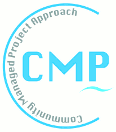Social, Environmental and Climate Risks Screening and Management ToT Conducted
Community-Led Accelerated WASH (COWASH) conducted a Training of -Trainers' (ToT) on Social, Environmental and Climate Risk Screening and Management from 22-23 November 2016 in Bishoftu city, Oromia National Regional State. The objective of TOT, is to enhance the skills of trainees in analyzing and managing social, environmental and climate risks to make COWASH project resilient to the impact of climate change and environmental degradation, and make it environmental friendly and socially acceptable.
The two days and experience sharing seminar attracted a few more than 30 participants who came from five COWASH regions, non-governmental organization and non-COWASH district.
Arto Suominen, Chief Technical Advisor of COWASH’s Federal Technical Assistance Team, in his official opening remarks underscored the need for efficient social, environmental and climate risk screening and management in COWASH Phase III.The advisor, by restating COWASH Phase III’s commitment to implement inclusive, safe and sustainable WASH project, called up on the participants to diligently work towards ensuring this objective.
The training helped the participants to further comprehend how much environment affects the projects and vice versa. Particularly, one of the three participants from Action Contre La Faim (ACF), a non-governmental organization, who, in addition to other humanitarian interventions, has started intervening in WASH, said that they have gained important insights on how to plan and manage climate resilient and environmental friendly WASH projects.
Following a brief PowerPoint presentation on the subject matter, participants, who were grouped to discuss on carefully selected hypothetical questions, identified the bottlenecks in screening and managing WASH projects for social, environmental and climate risks. Overwhelmingly, all regional participants mentioned poor integration among sector bureaus or offices as the main challenge to implement climate and environmental degradation resilient and socially acceptable WASH project. Budget shortage was also raised as the second most populous challenge in this regards. Lack of standard and skilled manpower were another constrained stated during the group discussions.
To further enhance the understanding of the participants, a visit to water supply schemes in Dire Kebele of Ada’a Berga district was arranged on the second day of the ToT. Participants were grouped into two to identify the potential risks and develop risk management and monitoring plans to alleviate those risks. Panel discussions that followed group presentations of the field visit generated useful learning points that participants have taken home.
Before the conclusion of the training, the guideline for social, environmental and climate risks screening and management was given to all participants. With regard to cascading the guideline, Oromia and Benishangul Gumuz regions have agreed to conduct the training and cascading workshop in December 2016. Tigray and Southern Nations, Nationalities and People’s regions decided to assign appropriate training time after discussing with Regional Support Units who failed to attend this training workshop. Amhara region decided to review the progress with other activities before it decides on how to cascade the guideline and training.



